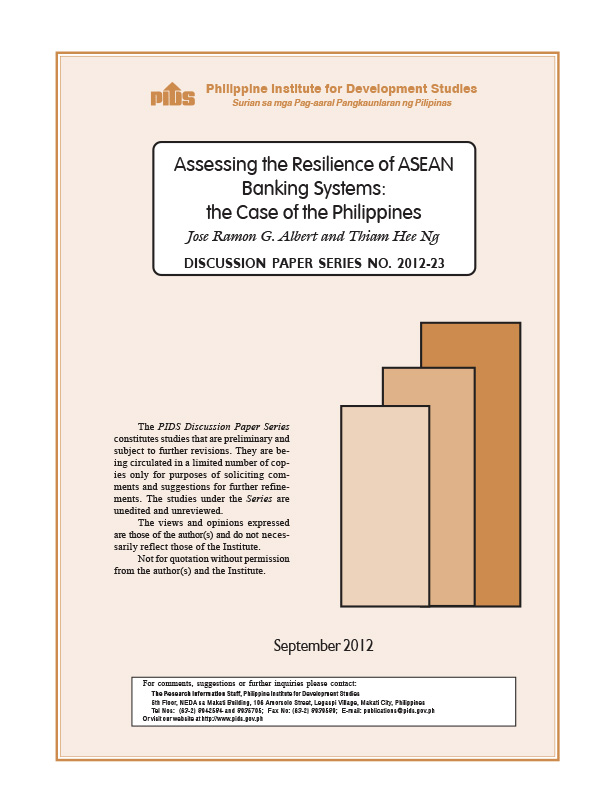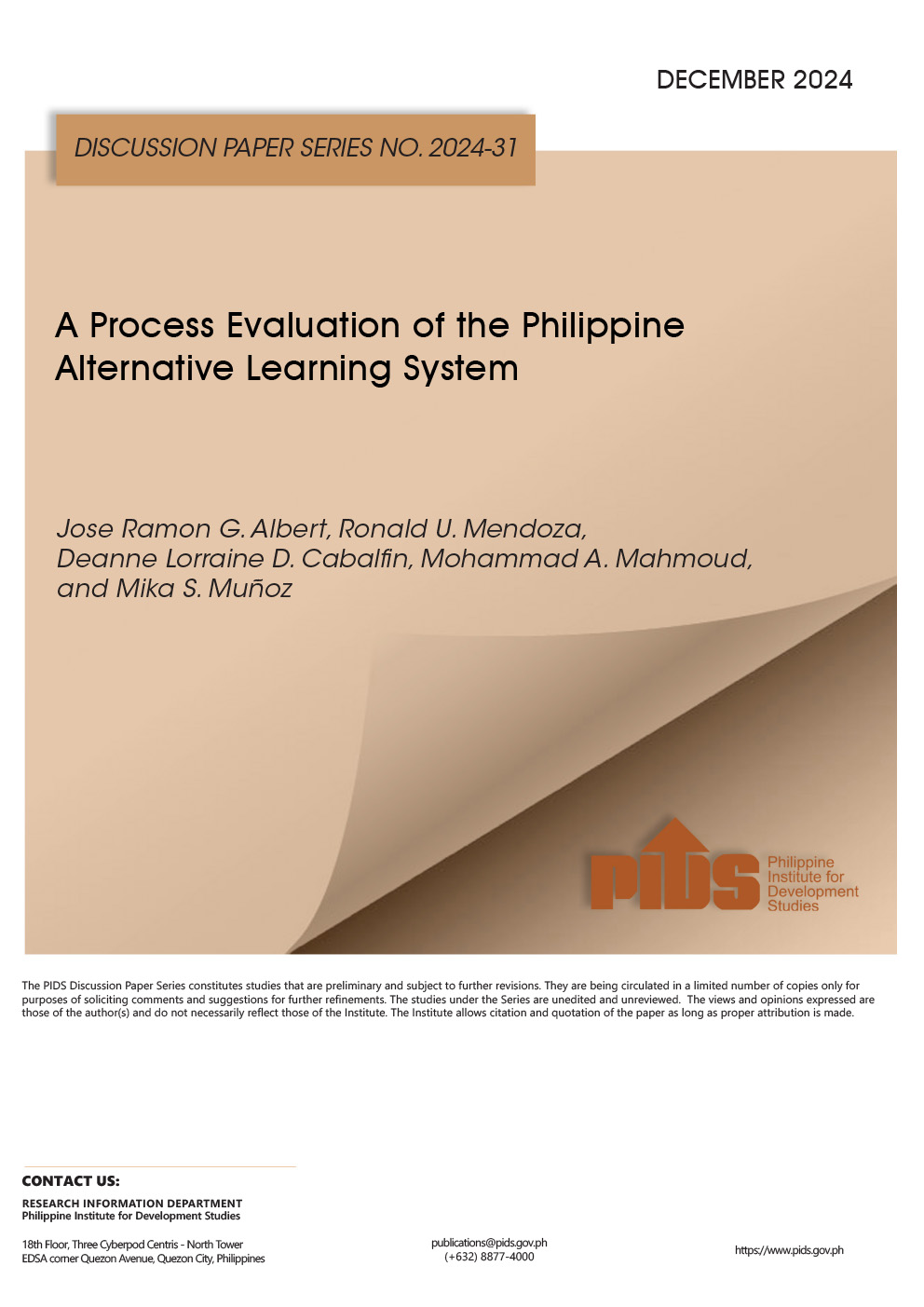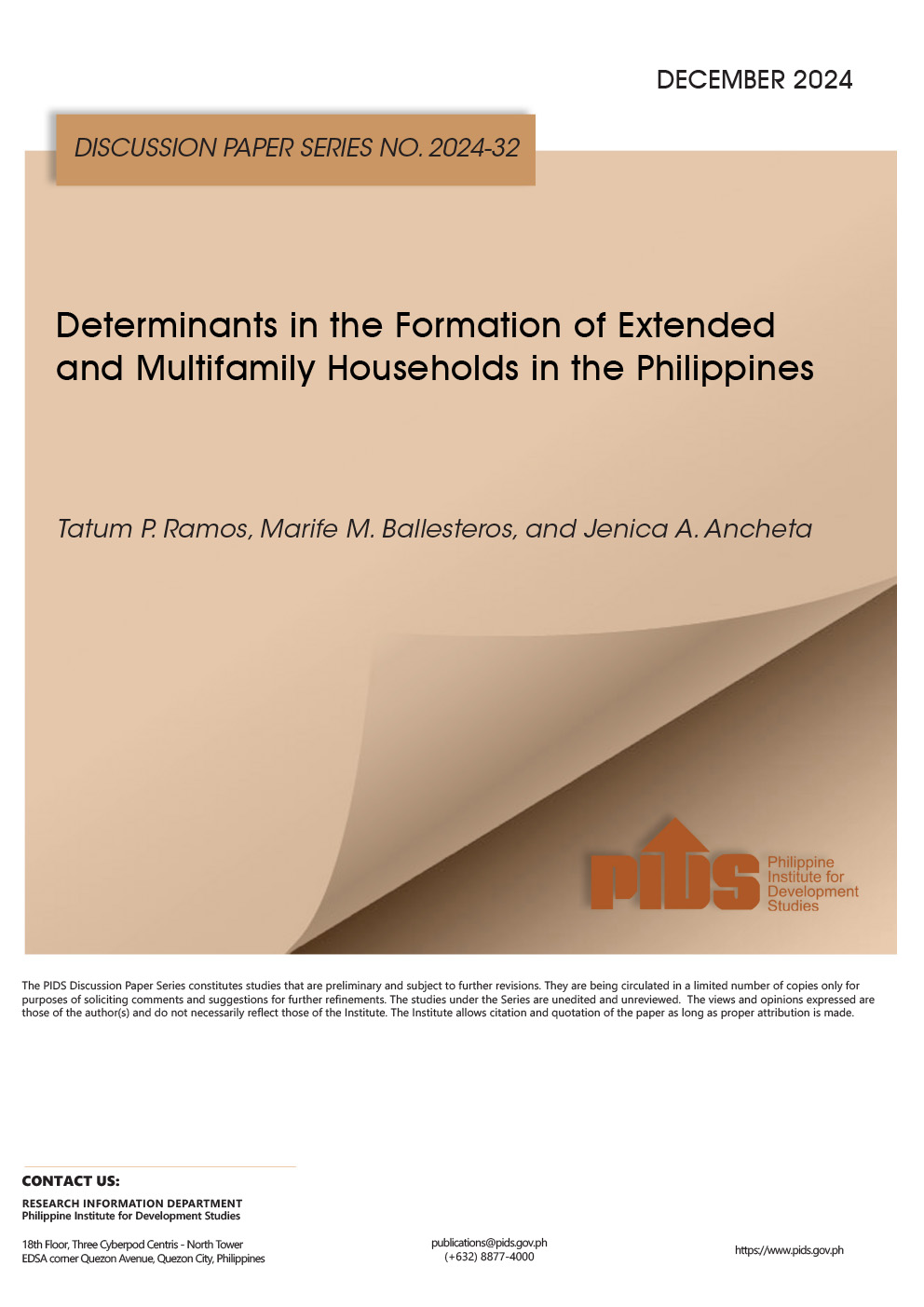Since the global financial crisis in 2008/09 there has been heightened concern about the resilience of banking systems in Southeast Asia. This paper proposes a methodology that uses a macroprudential perspective to assess the resilience of banking systems in member countries of the Association of Southeast Asian Nations. It then proceeds to apply this methodology to examine the resilience of the Philippine banking system. Data on financial soundness in the Philippine banking system are utilized in a vector autoregression model to study the dynamic relationships that exist among financial and macroeconomic indicators. Using impulse response functions, a simulation of financial ratios in the banking system is conducted by assuming unlikely but plausible stress scenarios to determine whether banking system credit and capital could withstand the impact of such circumstances. In the stress scenarios, the estimated impact of macroeconomic shocks on nonperforming loan and capital adequacy ratios is generally minimal. The results, however, do suggest that the Philippine banking system has some vulnerability to interest rate and stock market shocks. The results of such stress testing provide a better understanding of the level of preparedness required for managing risks in the financial system, especially in the wake of continuing global economic uncertainty.
Citations
This publication has been cited 1 time
- Kashiwabara, Chie. 2015. Changes in source of profits and business strategies?: Some evidence from the Philippines' universal banks in the 2000s. IDE Discussion Papers 520. Institute of Developing Economies, Japan External Trade Organization(JETRO).













